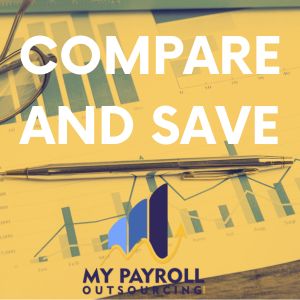
Payroll Service For Restaurants | Compare, Research, Save
Buyer’s Guide to Payroll Outsourcing for Restaurants
Payroll outsourcing can be an excellent option for restaurants looking to streamline their administrative tasks, improve efficiency, and ensure compliance with various tax and labor laws. This guide will walk you through the advantages of outsourcing your payroll, features to look for in a payroll provider, and some tips for making the transition as smooth as possible.
Advantages of Payroll Outsourcing
- Time Efficiency: Outsourcing payroll can save time, allowing you and your management team to focus more on the core operations of the restaurant like improving service, menu planning, and marketing strategies.
- Cost-Effective: In many cases, outsourcing can be more cost-effective than hiring a full-time, in-house payroll team. It also helps you avoid penalties associated with incorrect or late tax filings.
- Reduced Errors: Professional payroll providers have extensive knowledge and experience in payroll management, reducing the chance of errors and ensuring accurate, timely payments.
- Compliance: With ever-changing tax laws and labor regulations, ensuring compliance can be challenging for businesses. A good payroll provider stays updated with these changes and ensures your restaurant complies with all relevant laws.
- Improved Data Security: Payroll providers often have high levels of security to protect sensitive data, reducing the risk of fraud or data breaches.

Features to Look For in a Payroll Provider
- Ease of Use: The system should be user-friendly and straightforward, allowing you to easily process payroll, add new employees, and generate reports.
- Integration Capabilities: Your payroll provider should easily integrate with other systems you use, such as accounting software, point-of-sale systems, and time tracking applications.
- Tax Filing Services: Look for a provider that offers automatic tax filing services. They should be able to calculate, withhold, and pay both employee and employer payroll taxes.
- Customization: Every restaurant operates differently, so you’ll want a payroll system that can be customized to meet your unique needs.
- Customer Support: Excellent customer service is crucial. Your provider should offer prompt, helpful support when you have questions or problems.
- Scalability: As your restaurant grows, your payroll needs will too. Your provider should be able to scale up their services to match your growth.
- Employee Access: Many modern payroll services offer mobile apps or online portals where employees can access pay stubs, W-2 forms, and other payroll-related documents.
- Reporting: Good payroll services offer comprehensive reporting options to track labor costs, overtime, PTO, and more.
Making the Transition
Switching to a new payroll system can be a complex process, so here are some tips for making the transition smoother:
- Plan Ahead: Transition at a slower period of your business cycle to avoid disruptions.
- Communicate: Let your employees know about the change and how it will impact them. If they’re going to have access to new online tools or apps, provide training to help them navigate.
- Data Migration: Ensure all your data is accurately transferred to the new system. This includes employee information, tax data, and historical payroll records.
- Test Run: Before going live, do a test run to identify and fix any potential issues.
Choosing the right payroll provider for your restaurant can make a significant difference in your daily operations. It can free up time, reduce costs, and provide peace of mind that your employees are paid correctly and on time. By considering your unique needs and carefully evaluating providers, you can find the right fit for your restaurant.
Remember, as a business owner or manager, you need to stay involved in the process to ensure the payroll service is meeting your needs. Regularly review the reports provided, maintain open communication with your service provider, and don’t hesitate to ask for changes or improvements if necessary.

Extra Considerations
- Payroll Onboarding: Your provider should offer a thorough onboarding process to ensure you understand how to use their system effectively. This should include training and resources tailored to your restaurant’s needs.
- Cost Structure: Understand the pricing structure of the payroll service. Some providers charge a flat monthly fee, while others may charge per employee or per pay run. Make sure there are no hidden fees.
- Vendor Reputation: Do your due diligence. Check out reviews and testimonials from other customers, specifically those in the restaurant industry, to ensure you’re partnering with a reliable provider.
- Additional Services: Some payroll providers offer additional services like human resources support, workers’ compensation administration, and benefits management. These can be valuable additions if you need them.
Final Thoughts
Outsourcing payroll can bring significant benefits to your restaurant, but it’s essential to choose a provider that aligns with your business needs. With the right partner, you can ensure accurate and efficient payroll processing while freeing up your time to focus on running and growing your restaurant. Remember to consider the vendor’s reputation, cost, customer service, and the overall value they provide.
When you’ve made your choice, take advantage of the resources they provide to make the transition as smooth as possible. With careful planning and communication, you can enhance your payroll processes, stay compliant with laws and regulations, and create a more streamlined administrative operation for your restaurant.